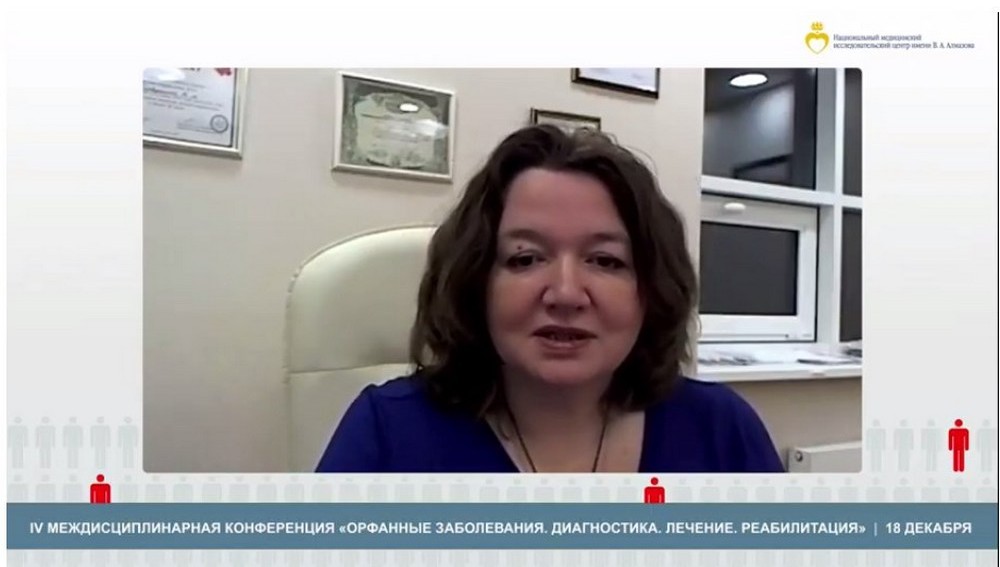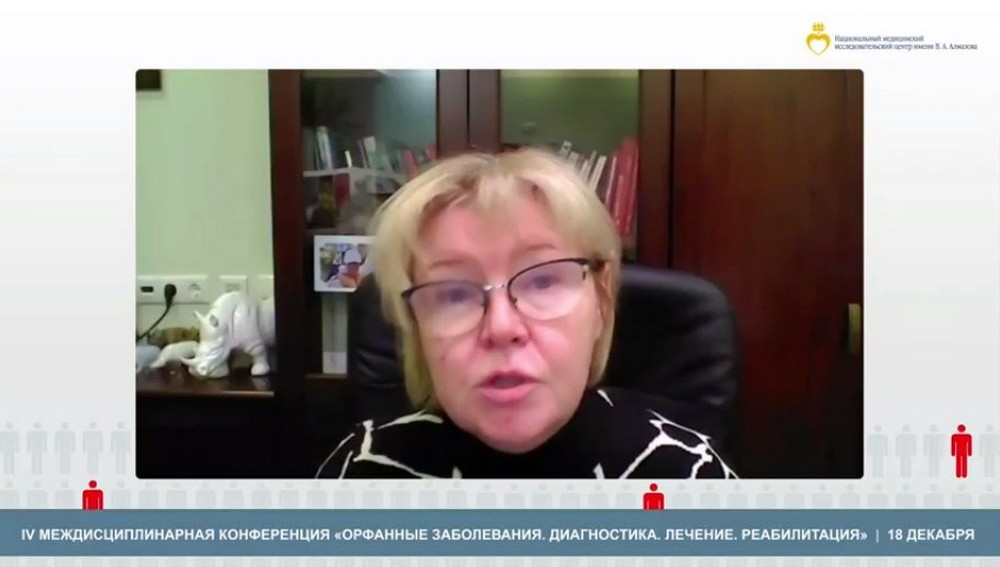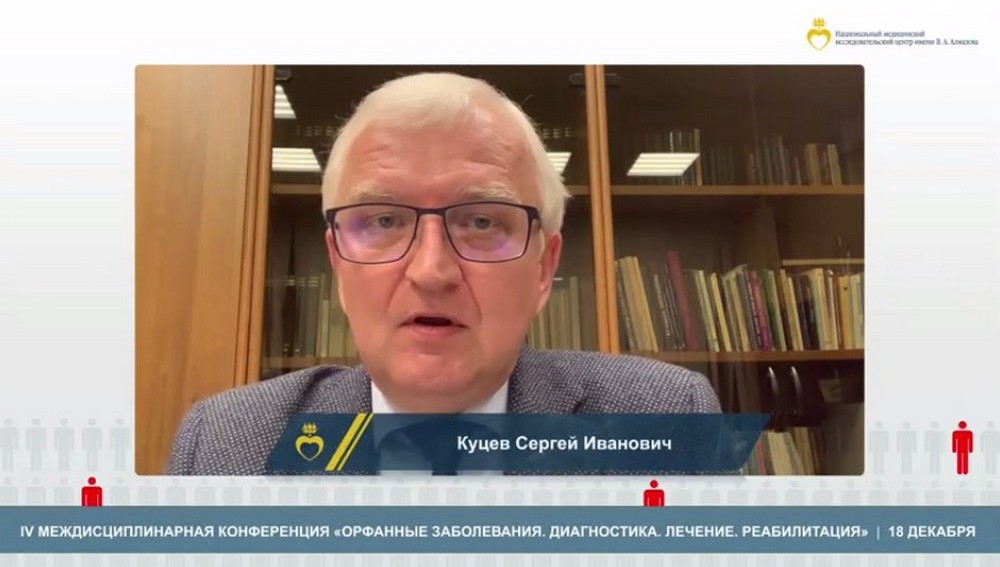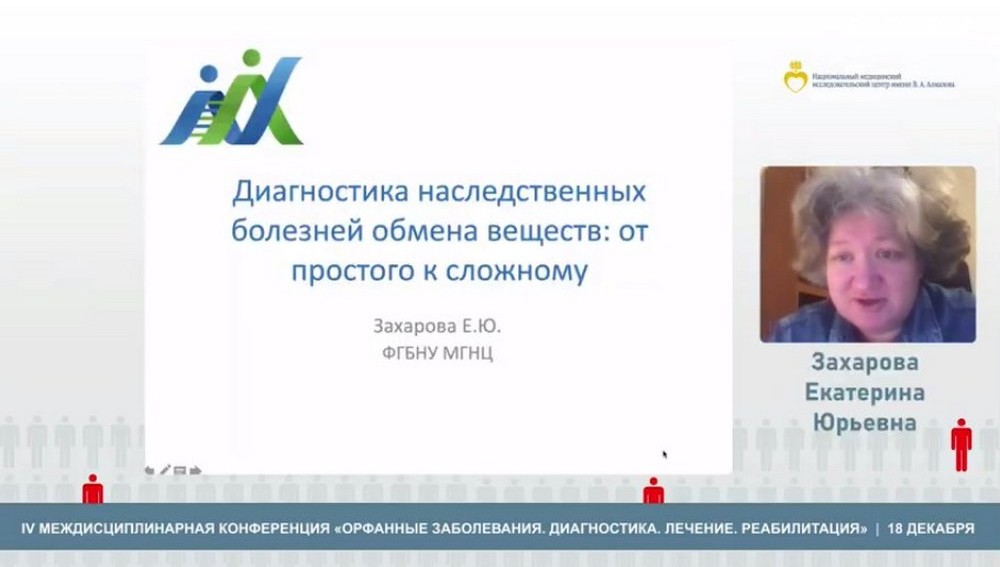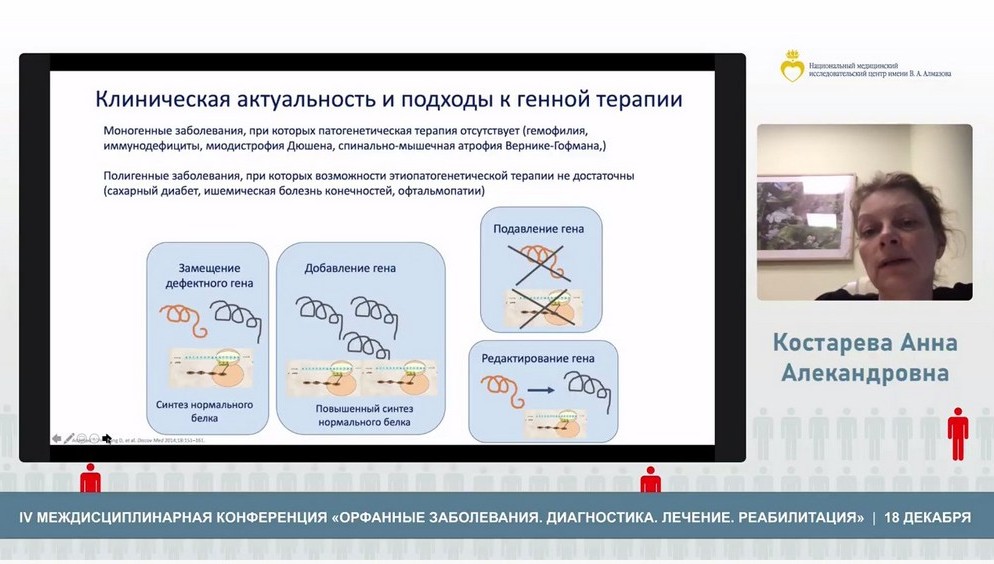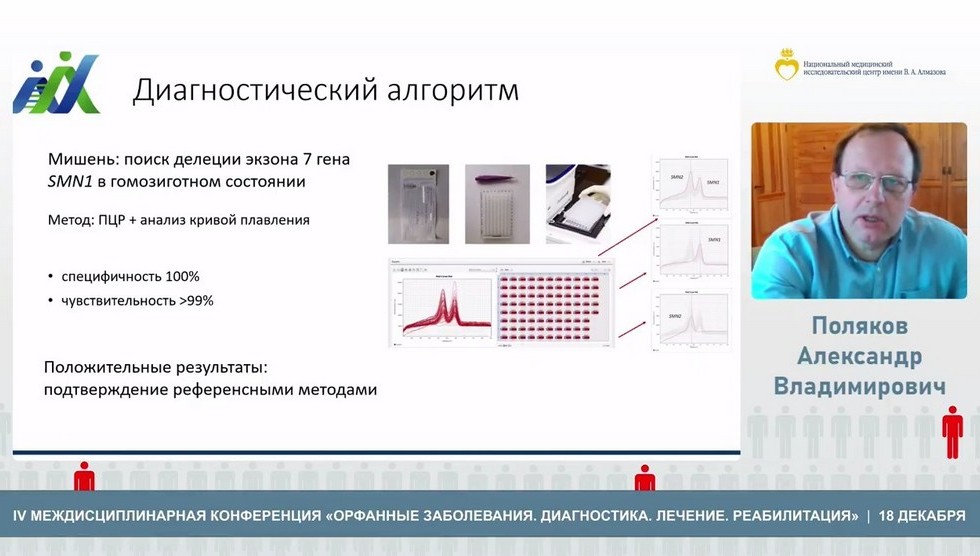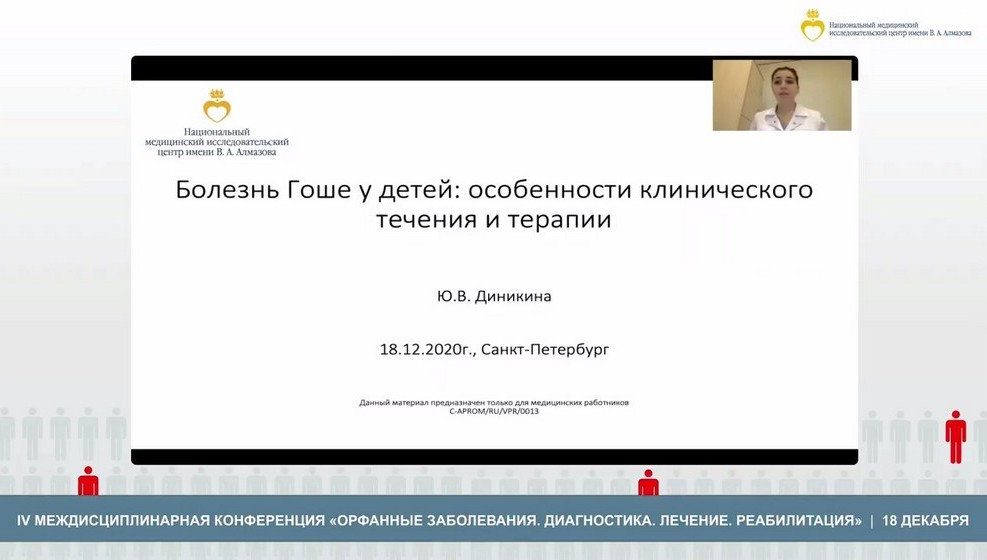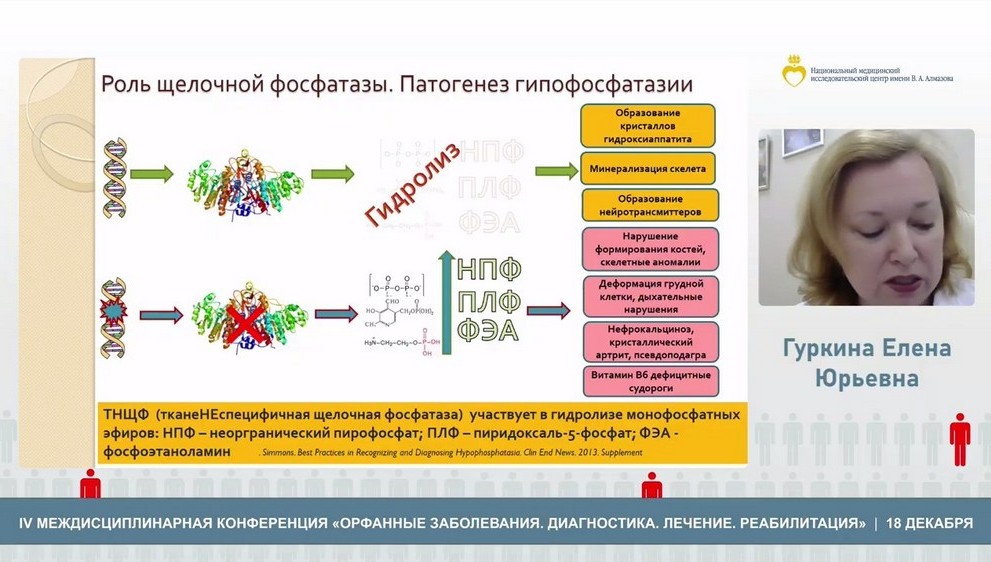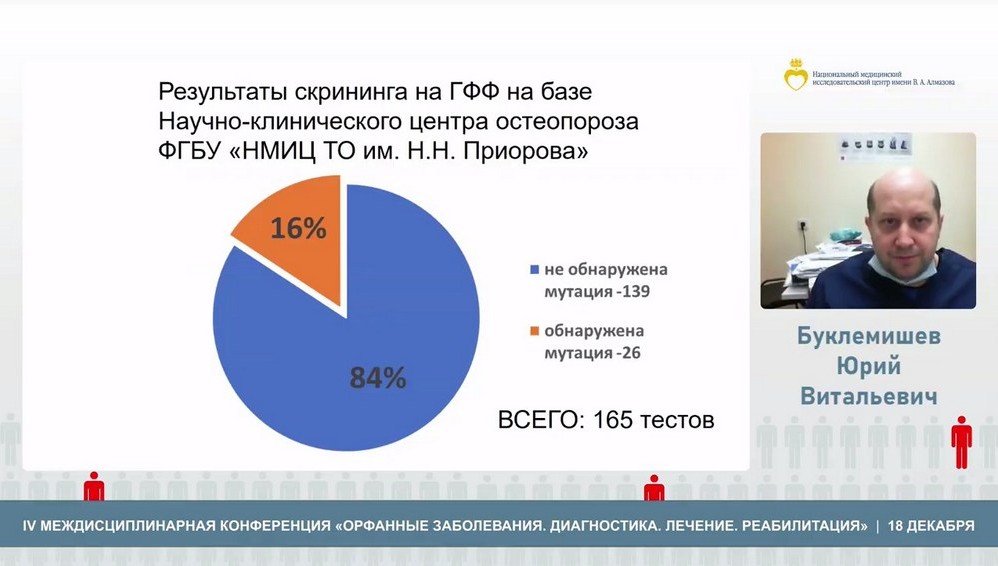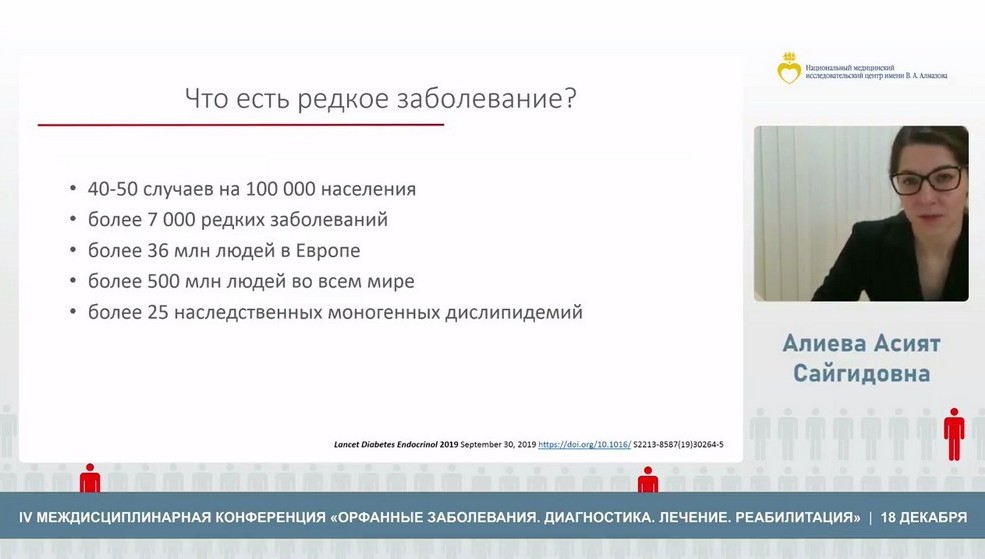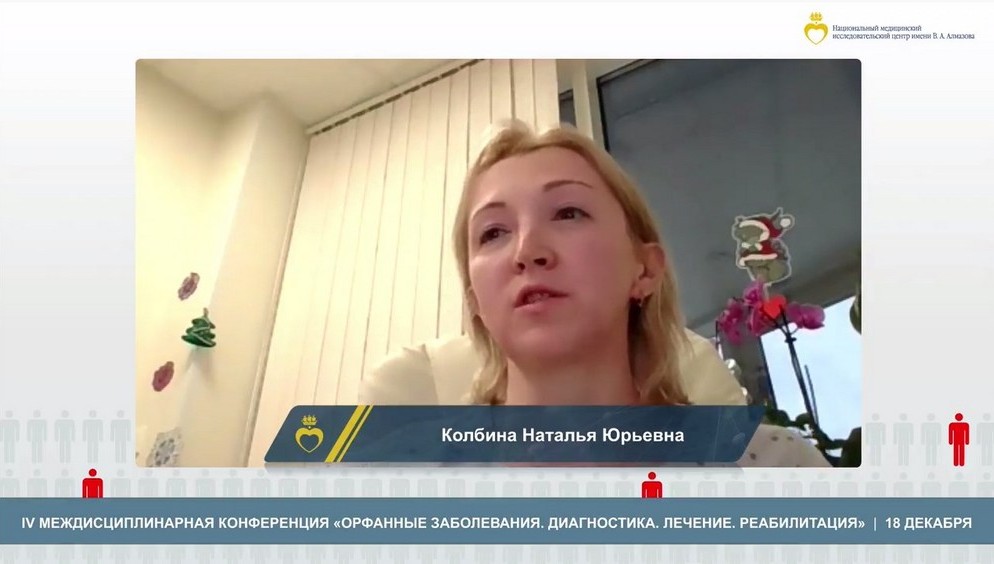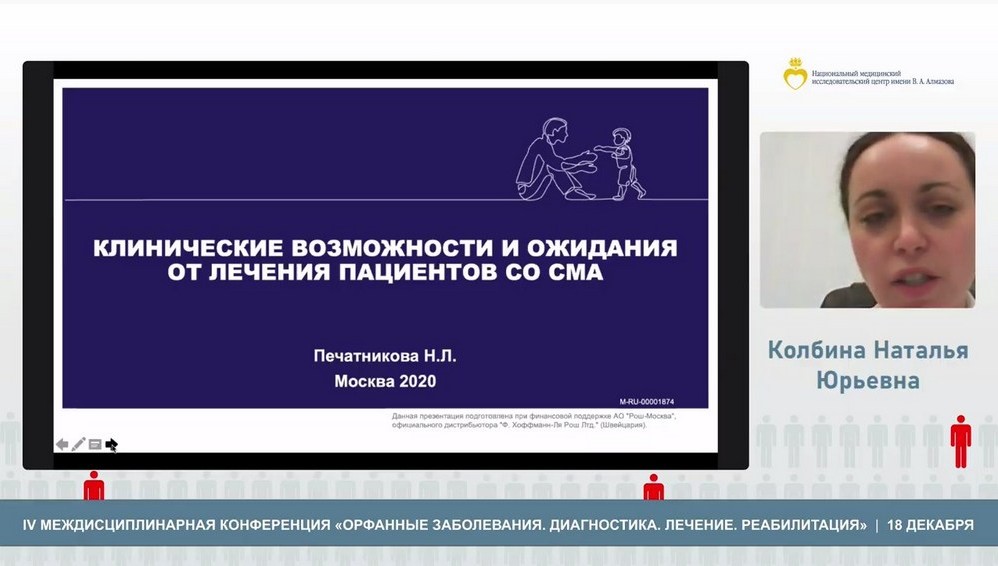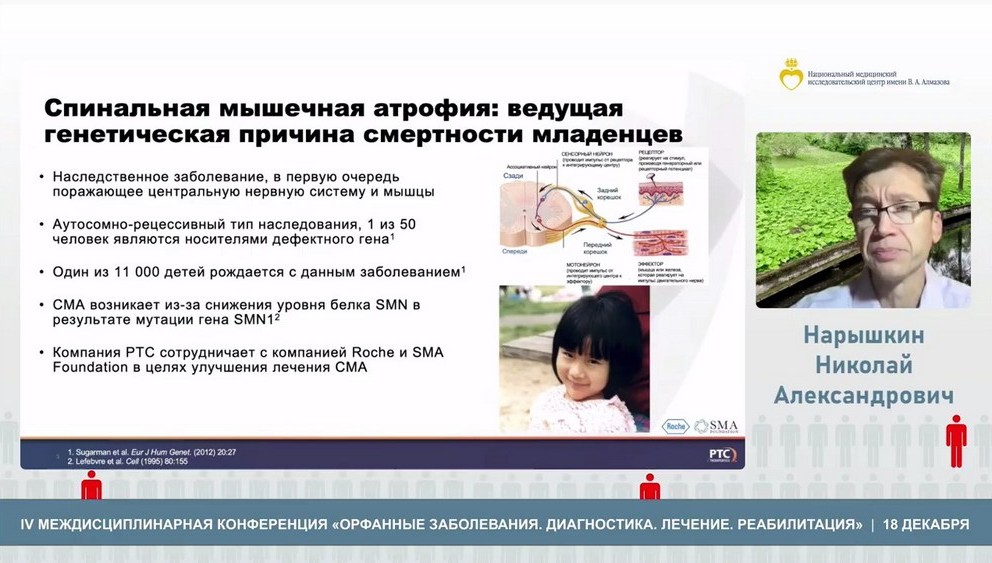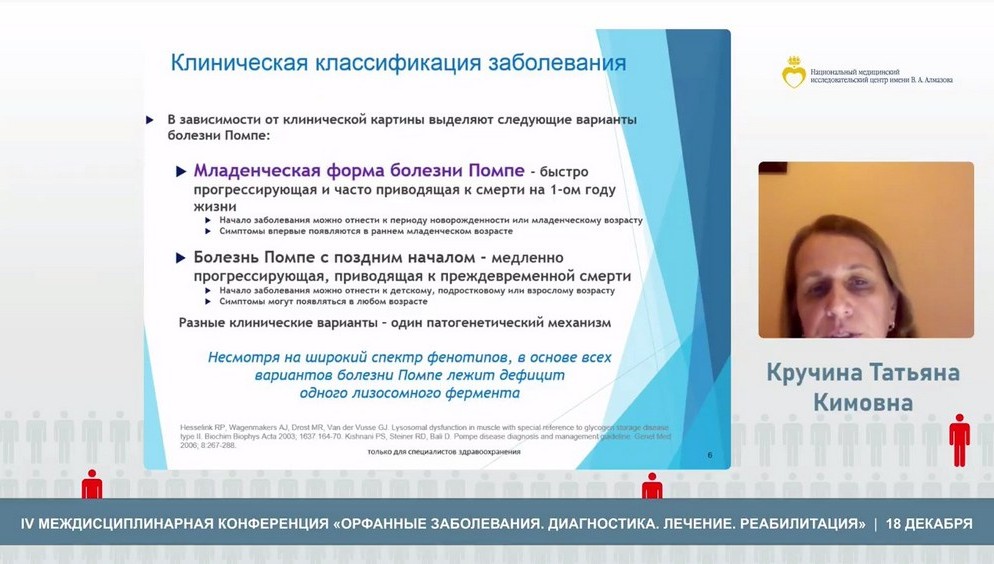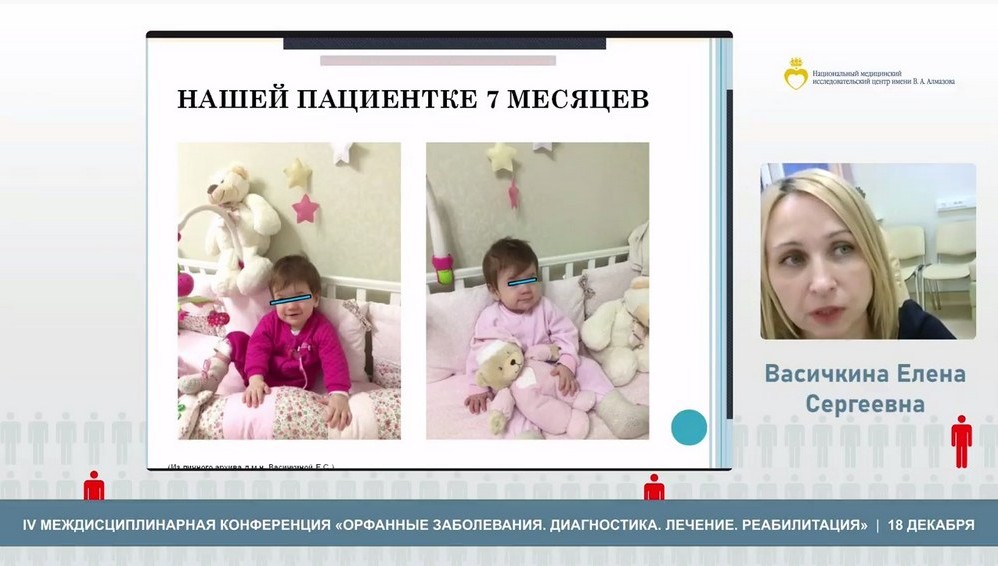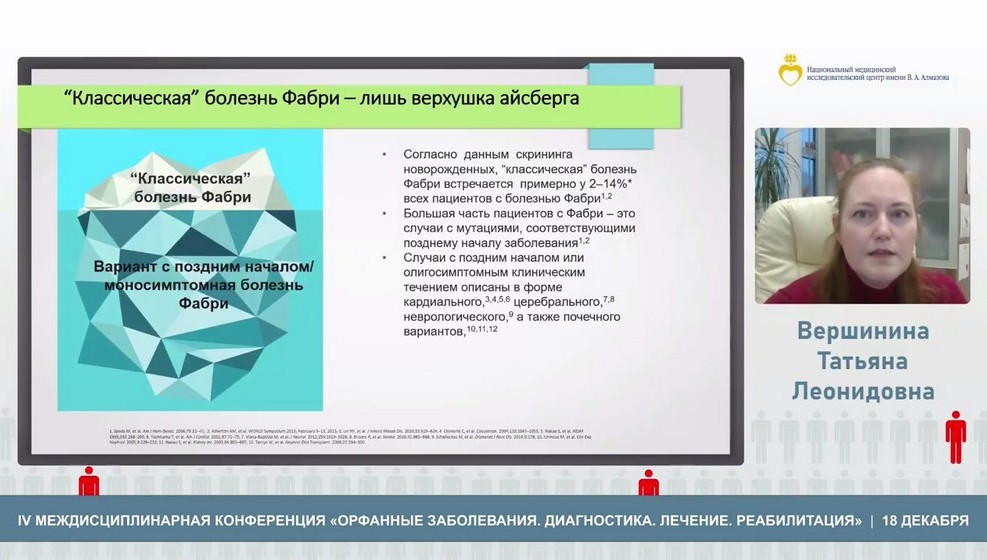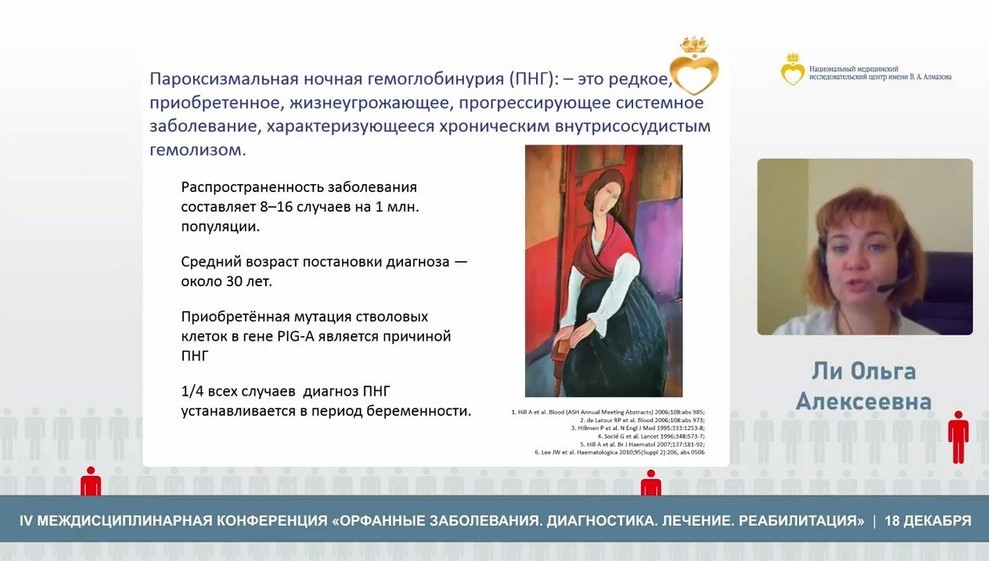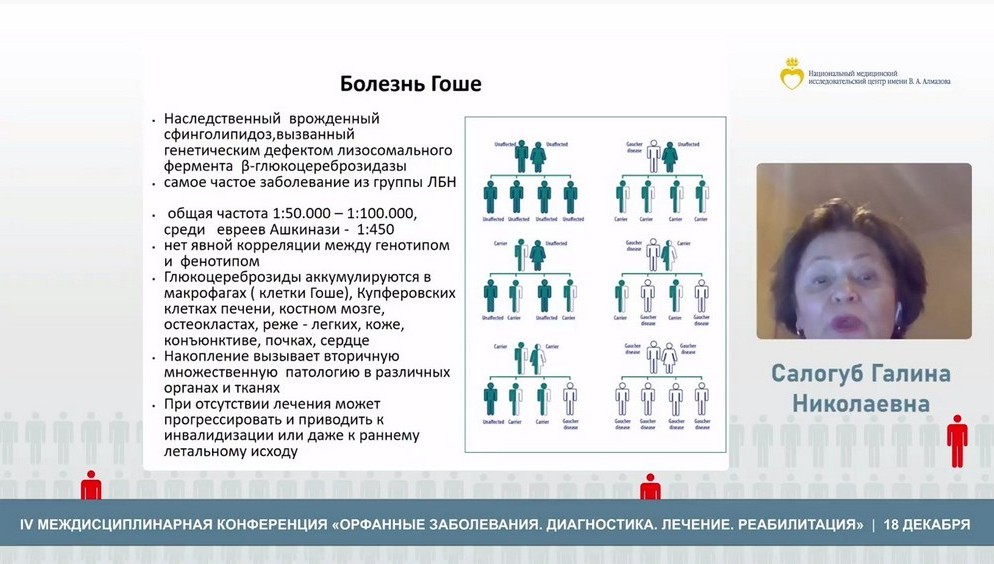On December 18, the 4th Interdisciplinary conference Orphan Diseases: Diagnosis, Treatment, Rehabilitation took place online.
The Conference opened with welcome words by Director of the Medical Genetics Research Centre (Moscow), chief visiting specialist in medical genetics of the Russian Health Ministry, Prof. Sergei Kutsev and Deputy Director General for Research of Almazov Centre, Prof. Alexandra Konradi.
The event also involved the participation of a renowned expert in rare and hereditary diseases, head of the Hereditary Metabolic Diseases Laboratory and Selective Screening Laboratory of the Research Centre for Medical Genetics, chairman of the expert council of the All-Russian Society of Orphan Diseases, Prof. Ekaterina Zakharova.
The conference focused on the topical issues of treatment and rehabilitation of children with orphan diseases, diagnostic features and clinical manifestations.
The participants discussed the current understanding of orphan diseases and their list approved by the Russian Ministry of Health. In Russia, orphan diseases are those with an incidence of fewer than 10 cases per 100,000 population. The list compiled by the Russian Ministry of Health includes 227 diagnoses.
Most presentations were given by the specialists of Almazov Centre.
The topic of particular interest was the early diagnosis of orphan diseases in children. In her presentation “Introduction to Gene Therapy”, Anna Kostareva described this method as a treatment by introducing additional genetic information into the patient’s cells at the level of DNA or RNA (genetically engineered constructs) or by changing gene expression.
The conference also covered specific diagnoses and methods of therapy in presentations by: Yu.V. Dinikina «Gaucher disease in children: clinical course and therapy»; E.Yu. Gurkina «Hunter syndrome: clinical manifestations, modern approaches to diagnosis, treatment and rehabilitation», «Clinical manifestations of hereditary hypophosphatasia»; A.S. Alieva «Lysosomal acid lipase deficiency (LAL-D) as a cause of genetically determined dyslipidemia»; E.S. Vasichkina “MPS I – Is it always difficult to diagnose? Clinical experience in the treatment and management of patients with MPS I”; T.L. Vershinina “Fabry disease in children. Clinical picture, diagnostic features, treatment approaches”.
The session “Orphan diseases in practice, modern approaches to treatment and management” featured presentations by the following specialists of Almazov Centre: G.N. Salogub “Unresolved issues of diagnosis and management of patients with Gaucher disease”; O.A. Li “Reproductive function in women with orphan diseases. Success strategy”; E.S. Vasichkina “Modern view of mucopolysaccharidosis type VI. Clinical trials review”; T.L. Vershinina “Mucopolysaccharidosis type IV. Clinical cases of Almazov Centre”.
The session was moderated by Director of the Institute of Perinatology and Pediatrics T.M. Pervunina and Head of the Department of Internal Medicine of the Medical Education Institute G.N. Salogub.
Despite the online format, the scientific programme was versatile and included lectures, plenary lectures, scientific symposia with interactive discussions and aroused great interest among the audience.

